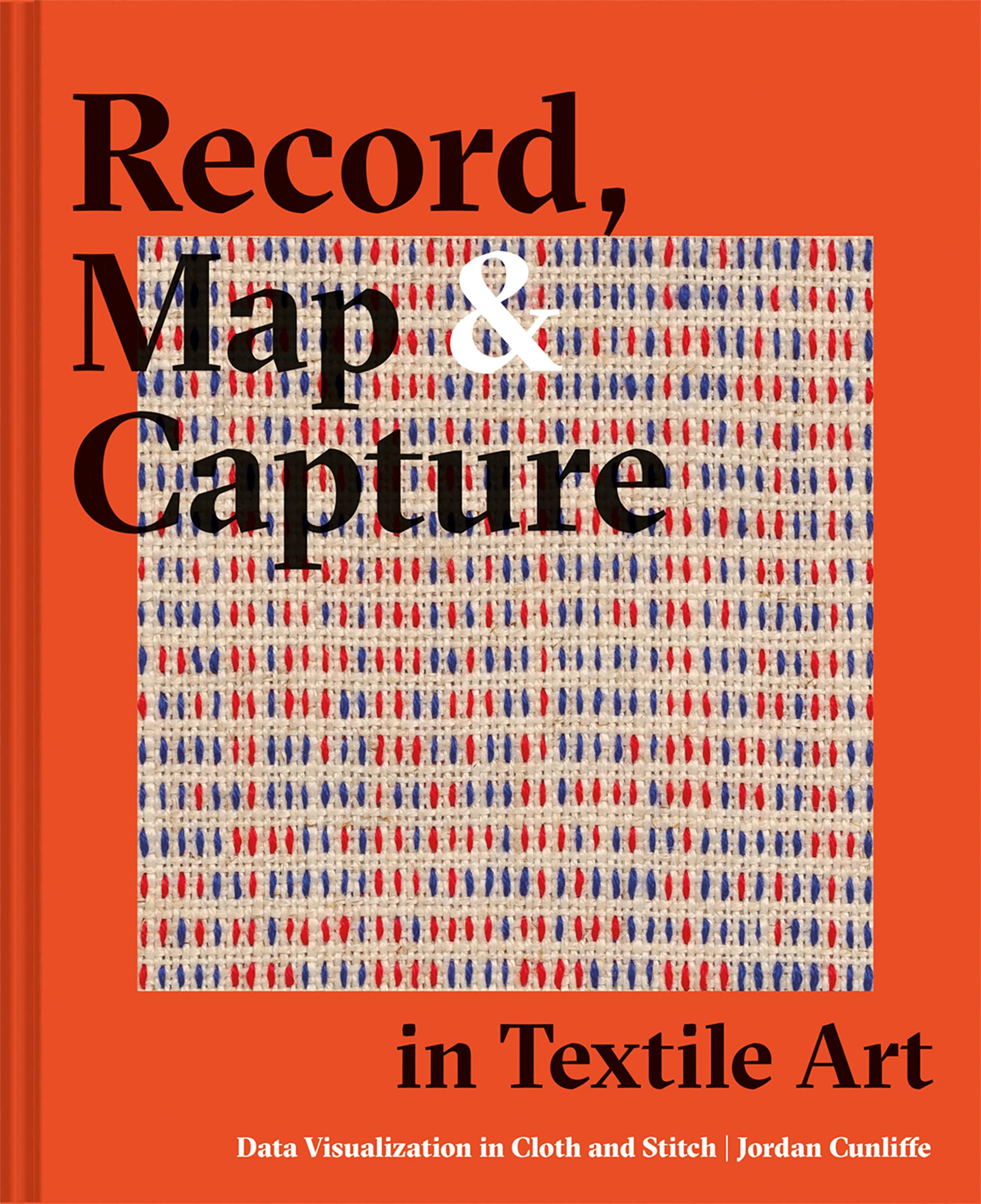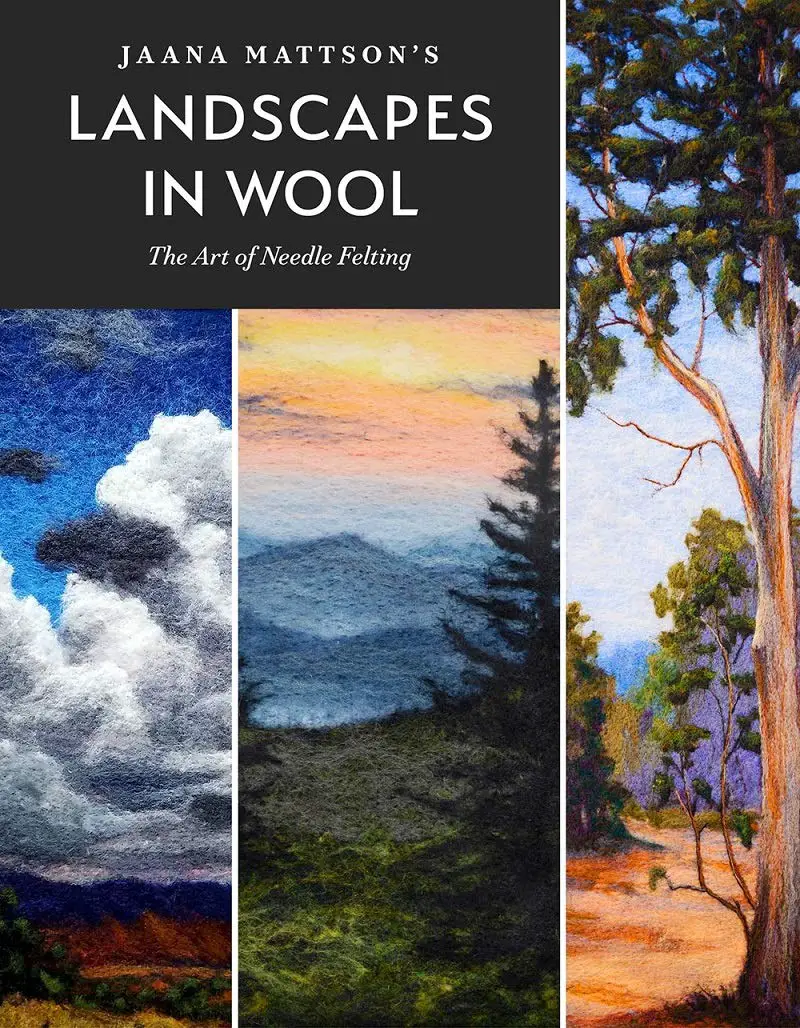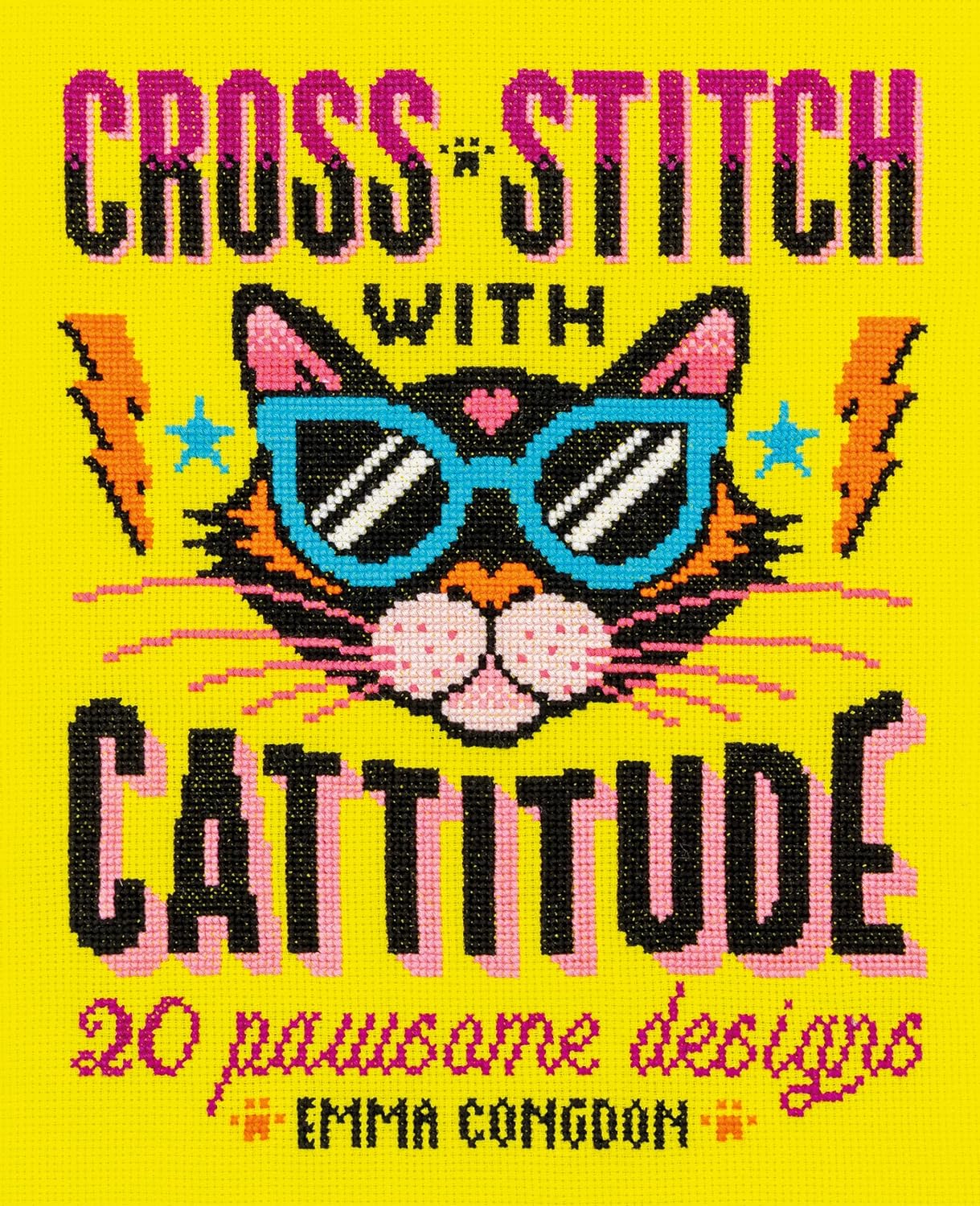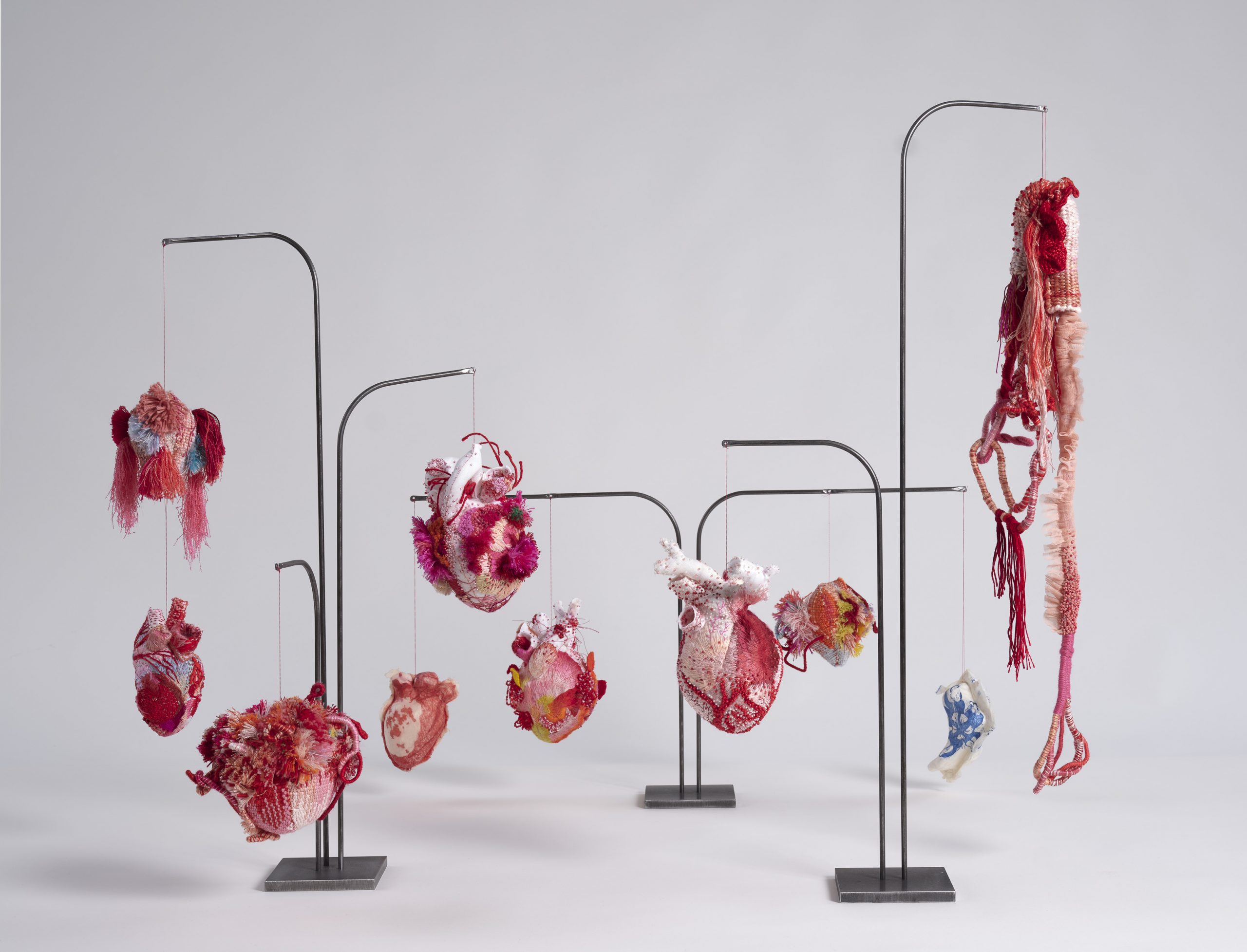
At Mr X Stitch we love to review textile art and embroidery books for you. There are so many great books to discover, packed with needlework inspiration and textile techniques, so we dive into each book to find out what’s good, what’s bad and let you know why you should pick it up.
Introduction
Record, Map & Capture by Jordan Cunliffe explores infographic creation through textile art. It is a fascinating look into a great way to share data and information, and this book features the author’s own work as well as other data-focused artists.
About The Author
Jordan Cunliffe is a textile artist and focused designer in embroidery, living in Lancashire, UK. She has a BA in Embroidery and an MA in Surface Pattern and Textiles. She specialises in producing work with a data and storytelling edge, using traditional techniques to inspire contemporary outcomes. She has a website and instagram account.
Who Is This Book Aimed At?
If you like using data in your work, or exploring new ways of sharing information, you will find this book a fresh and exciting resource.
This book also shows how personal stories can influence even simplistic designs, so those who enjoy giving their narrative to their textile art will be fired up by this book.
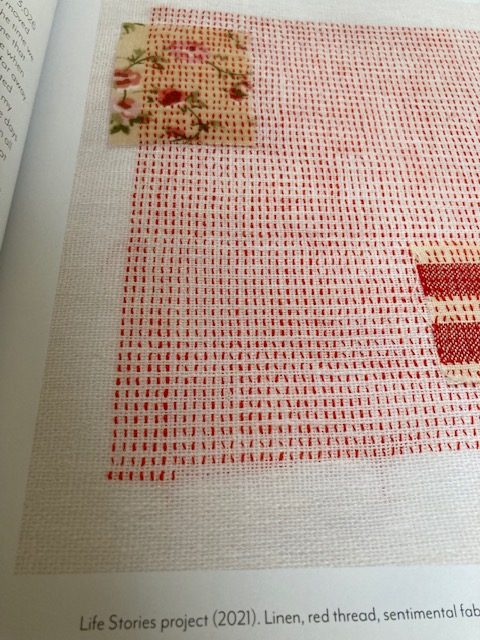
Content
Jordan explores the use of stitched data to convey her personal narrative, locate special places on maps, reveal secret messages, and record personal thoughts, i.e. daily walks or even sleep patterns.
Her finished work is intricate and beautiful and she evidences how almost any aspect of your life can be represented in graph or map form.
The book is divided into three main sections: Data Visualisation, Steganography, Algorithms and the conclusion includes added extras of Graph Paper and Code Translators.
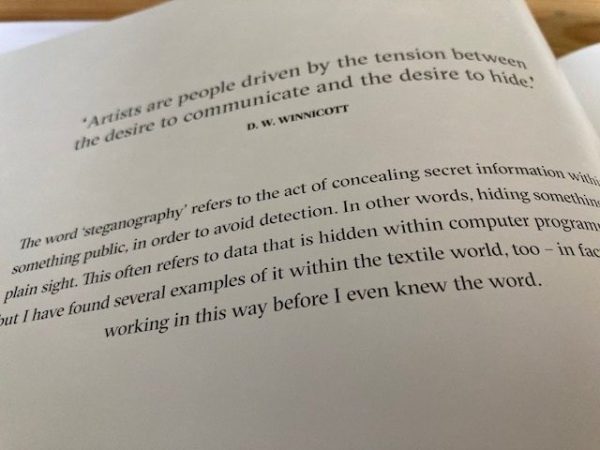
Personal Stories
One of the book’s strengths is in developing visual methods of personal storytelling. Jordan showcases how aesthetically simplistic designs can include so much meaning. Take the above example in which the thread colour and added patches of material have specific meaning. Similarly the image below shows that beadwork can be more than a simple embellishment, it can act as a data point.
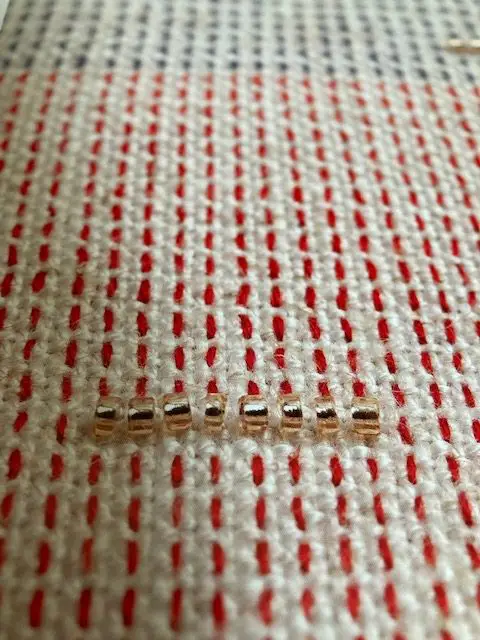
For Jordan, the use of meaningful materials is integral to the storytelling of each piece, and by using sentimental fabric as the base, the information is presented in an emotive way that outclasses PowerPoint presentations by a mile.
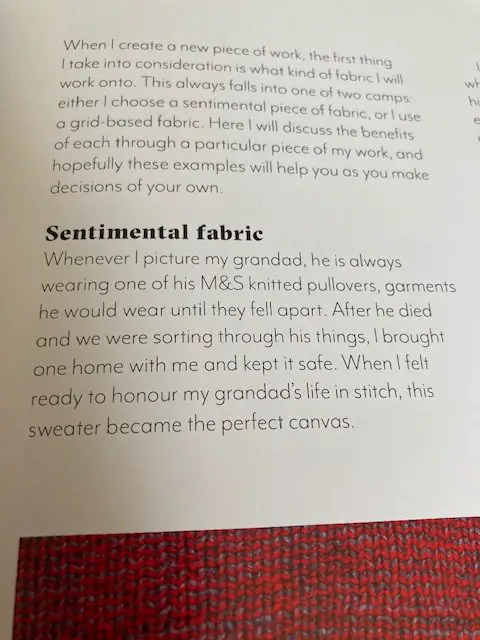
Culture and History
Although infographics seem like a contemporary form of presentation, textiles have been used as a cultural record for centuries and Jordan reminds us of assorted examples. If you’re interested, we’ve got a review of the Great Tapestry of Scotland that is another fascinating infographic.
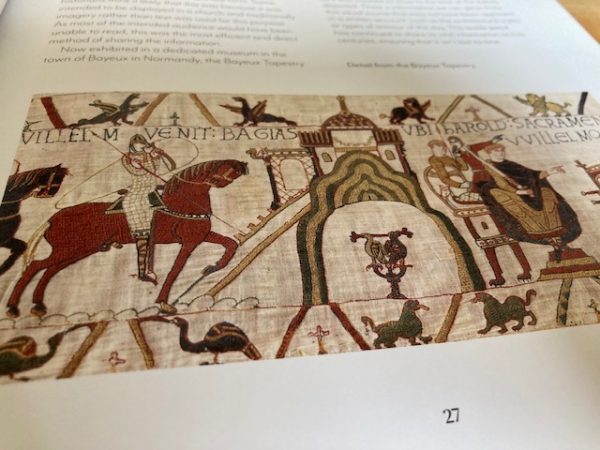
The photography throughout the book illuminates Jordan’s ideas and you get to appreciate the method and creativity in her textile data presentations.
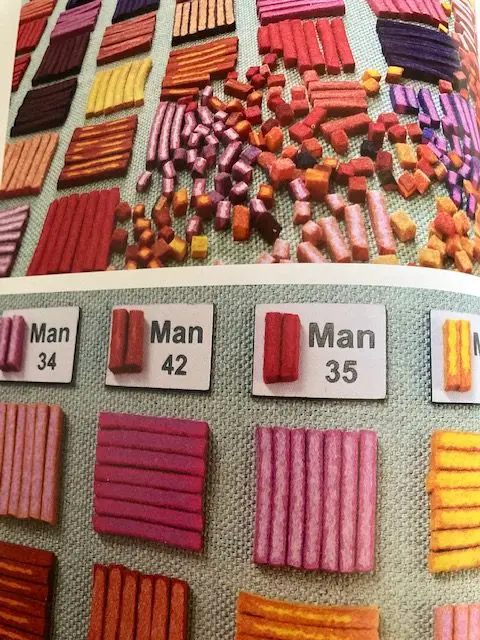
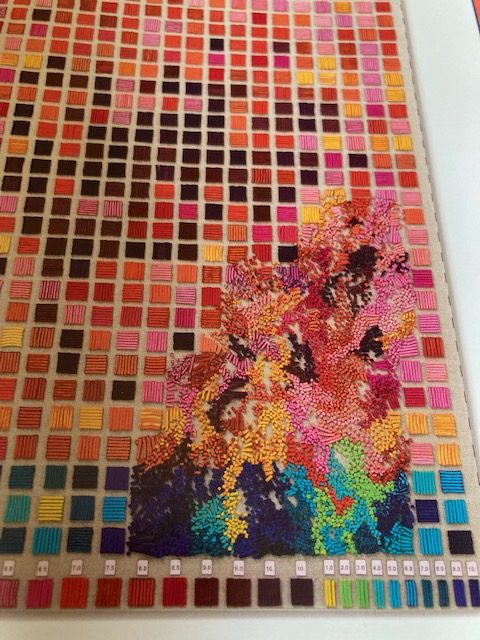
Materials
To guide you on your quest towards data dexterity, Jordan provides a useful list of materials that will aid not only your textile trajectory, but will be helpful for data gathering.
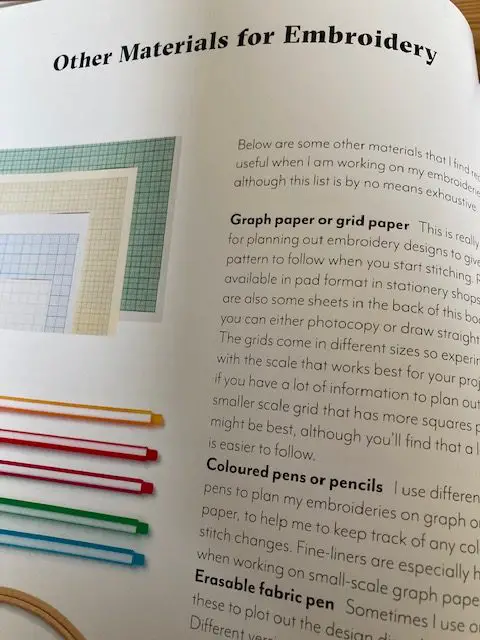
Artist Profiles
As well as showcasing her own work, Jordan includes other artists whose work falls within this infographic category. These provide another layer of new ideas and it’s fascinating to connect with this community of textile data analysts.
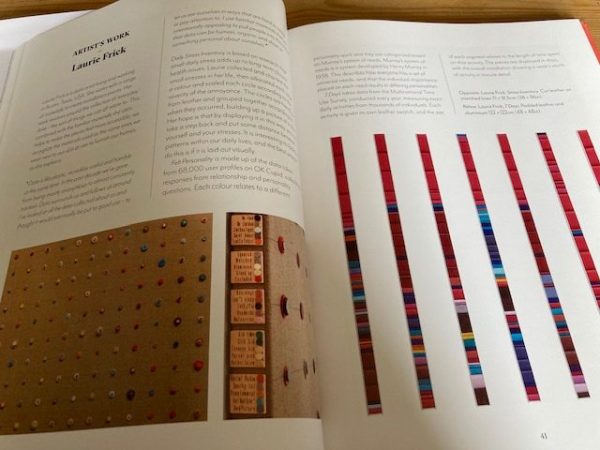
Conclusion
The idea of presenting data through textile visualisation might seem like science fiction, but in Record, Map & Capture, Jordan Cunliffe proves that it’s a beautiful way of recording important aspects of life.
If you’ve ever kept a journal, or tracked changes in some way, this book inspires you to share that data in new and embroidered ways!
Record, Map & Capture by Jordan Cunliffe is published by Batsford Books.

